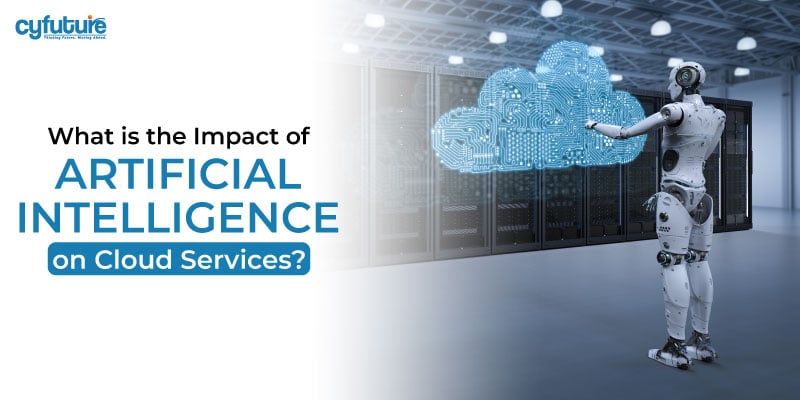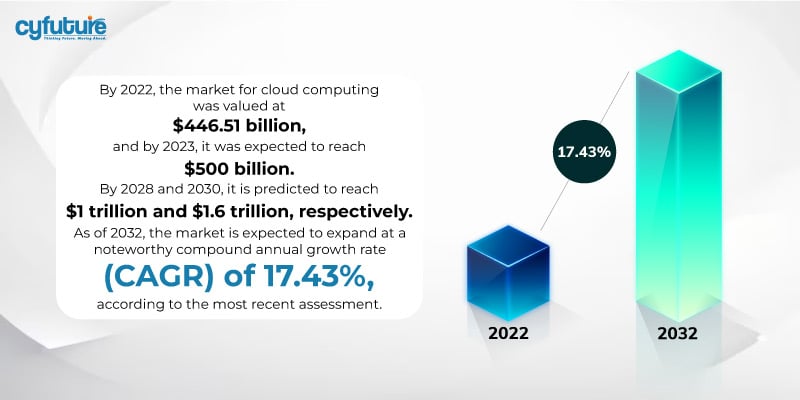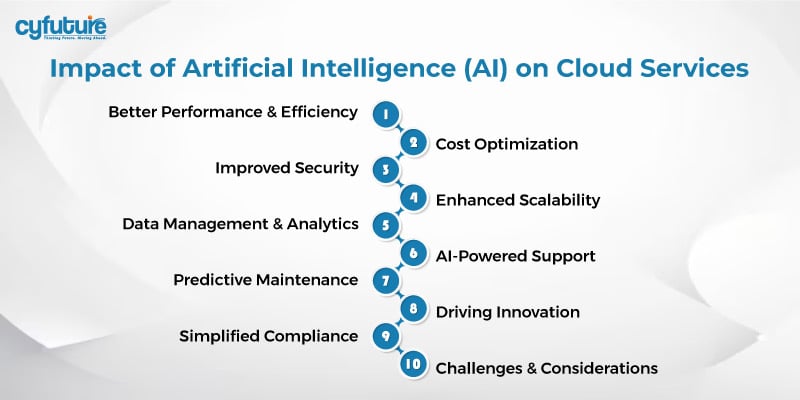-
Get Cloud GPU Server - Register Now!
Toggle navigation

Integrating artificial intelligence (AI) and cloud services completely transforms today’s dynamic technological environment. The cloud allows instant configuration of applications at a lower cost. Furthermore, enterprises can leverage easy scalability, high efficiency, and increased security. The cloud offers easy storage of growing volumes of data accessed from across the globe.
Years have passed, and the cloud has become a powerful tool enabling enterprises to realize AI’s full potential. Furthermore, cloud computing and artificial intelligence (AI) are bringing to reality a future in which your data is actively processed, evaluated, and used to influence choices. Therefore, with businesses dealing with ever-increasing volumes of data, fully utilizing AI in cloud services has become critical to survival and growth.
Moreover, by incorporating AI into cloud platforms, businesses can automate procedures and increase operational efficiency in previously impossible ways. They will also get insights from massive datasets. Are you ready to discover how this powerful combo transforms the business landscape?
In this comprehensive blog piece, we will focus on the several impacts of artificial intelligence on cloud services. Additionally, we will focus on this integration’s innovations, benefits, and challenges.
However, let’s look at a few stats and data before delving deep.

Now, join us on this adventure to discover the benefits of using cloud computing and artificial intelligence in business for any progressive organization.

Enhanced performance and efficiency will be the greatest impact of AI on cloud services. AI algorithms can analyze huge volumes of data to optimize cloud resource allocation, thereby working out ways to evenly balance the workloads and make them processed effortlessly.
For instance, AI can predict peak usage times from existing data, and the providers can dynamically allocate resources. This means that latency is reduced and load times are faster. Users experience better services. Additionally, AI is utilized by managed cloud hosting service providers to automate routine practices such as the scheduling of software updates and backups, and the resource may be freed up from IT.
The cost has always remained one of the prime concerns for any firm, and the effect of AI on cloud services addresses that right away. It utilizes predictive analytics so that an organization can predict the cloud more accurately in terms of usage. This saves organizations from over-provisioning resources, which often causes unrequired expenditure.
AI can optimize the resource usage of cloud-based organizations in real time. Unused or reallocated resources could be automatically shut down based on the demand. This level of automation brings down all the operating costs and increases the overall efficiency of the resources used under managed cloud hosting.
One area that stands out with improved cloud services within the modern paradigm of digital computing is security. In this regard, AI improves security within cloud providers because it can monitor and check every part of the cloud environment in real-time. It then alerts the security systems to anomalies or new threats that might not be detected using traditional security systems.
For instance, machine learning algorithms identify unusual patterns in cloud infrastructure behavior, such as unauthorized access attempts or unusual data transfers. Businesses can immediately act to minimize a security breach by flagging these anomalies.
Added Advantage of AI-driven security measures to the clients, managed cloud hosting provider’s secured data through advanced threat detection system can give confidence to enhance compliance with customers to industry regulations.
Scalability is one of the primary benefits of cloud services that AI enhances further. AI-based solutions can look at business growth patterns and predict future resource usage needs. This allows organizations to scale their cloud infrastructure without a hitch, absorbing greater workloads with no loss in performance.
For example, an AI can perfectly forecast the sudden spiking of user activity when a tech company executes a product launch if it is trained with historical data and past trends.
Data is the new oil, and data management is essential for business because cloud services have come to fit in crucially with AI, too. It will enable businesses to draw conclusions from large datasets quickly and efficiently and convert them into actionable insights that inform decisions.
The data analytics solution by the managed cloud hosting providers caters to the automatic processing, identification of trends, and report generation in real time. These organizations enable businesses to make the right decisions based on companies far ahead.
Customer support is evolving, and the vanguard of that evolution is undoubtedly AI. Cloud service providers increasingly use AI-based chatbots and virtual assistants for better customer support experiences. Using these tools, they can respond to a myriad of simple questions and complex ones, from troubleshooting in theory to advanced problem-solving, to ensure faster response and greater customer satisfaction.
In a cloud-managed hosting environment, AI-based support will also bring light to common issues that clients face, which the provider can make good before it hits and hurts the clients. It is that kind of automation that will bring about improvement in customer experience as well as drive away support loads.
Aside from customer support and security, other capabilities of AI extend its predictive ability. For example, in the field of cloud services, AI capability might allow monitoring of the performance of your hardware and software. This intends to predict when its use requires maintenance to avoid downtime and ensure better reliability for service.
The managed cloud hosting providers can ensure that all their servers and all other infrastructure components are in top shape using AI predictive maintenance. In this respect, when the provider addresses issues before they become huge, it allows them to extend a higher level of service to their clients.
Thus, AI is at least partly a driving force for innovation by allowing businesses to develop and deploy new applications and services faster than ever. It, therefore, requires cultural innovation to keep pace with the fast-changing markets.
For example, AI can be used to develop a more intelligent application that learns from the actions of a user and, therefore, is more and more personalized. Cloud services help make these developments much easier, with scalable infrastructure and resources quickly exploited for this development.
Industry compliance is one of the biggest challenges for any business, especially regarding industries and related companies regarding sectors with high regulations and health. Automated data management, reporting, and the creation of an audit trail can be part of simplified compliance helped by AI in cross-cloud services.
The compliance tools that have been generated with the power of AI allow managed cloud hosting companies to monitor usage and access of data, creating an inbuilt check against rules and regulations. It lowers the risk of going against compliance and builds customer trust.
Many advantages make incorporating AI into cloud services a boon, but it is not devoid of challenges. Businesses will have data privacy issues, ethical AI usage, and complexity in managing technology.
Dependencies on the AI system itself become vulnerabilities if not managed. It calls for investment in better cybersecurity that organizations would not let happen due to a few exposures that can exploit AI algorithms.
Another important consideration about this is that the vendors embracing AI-driven cloud services, here their teams need to be effectively trained on how these technologies could be understood or managed so that risks associated with implementation could be minimized.
AI will be more deeply collaborative with cloud services. The future could come with the following developments:
Integrating artificial intelligence with cloud services is a very important moment in technology. By using AI, companies can improve performance and cost optimization, strengthen security, and accelerate innovation- all while simplifying the compliance process.
AI has tremendous scope to influence managed cloud hosting and related services going forward. The level to which an organization is aligned with this change will determine how it remains at the forefront of innovation, ready and ever-capable to respond quickly and efficiently to market demands.
In this new era of cloud computing, the even more incredible harmony between the two will not only offer a gilt-edged opportunity but be a necessity for those businesses looking to that are looking. Think about the future of your organization as you look forward to making improvements you can make toward AI and how it will drive your success.
AI makes cloud services efficient by automating routine tasks, optimizing resource management, and providing predictive maintenance. This leads to faster processing times, reduced downtime, and general performance improvement.
Yes, AI greatly enhances the data security of a cloud. The algorithms can read threats in real time, predict possible vulnerabilities, and automatically implement security measures, thus making a cloud environment safer.
AI can effectively control costs better because of its ability to analyze usage patterns and predict future resource needs, thus dynamically scaling resources to ensure users only pay for what they use.
Yes, small businesses can benefit from artificial intelligence in cloud services. Artificial intelligence tools help automate routine tasks, enhance customer interactions, provide advanced analytics, benefit small businesses, and enable them to operate more efficiently than larger enterprises.
While the initial investment can be relatively costly, the benefits often outshine the actual costs in the long term. It can save money through efficiency, fewer operational costs, and better resource management.